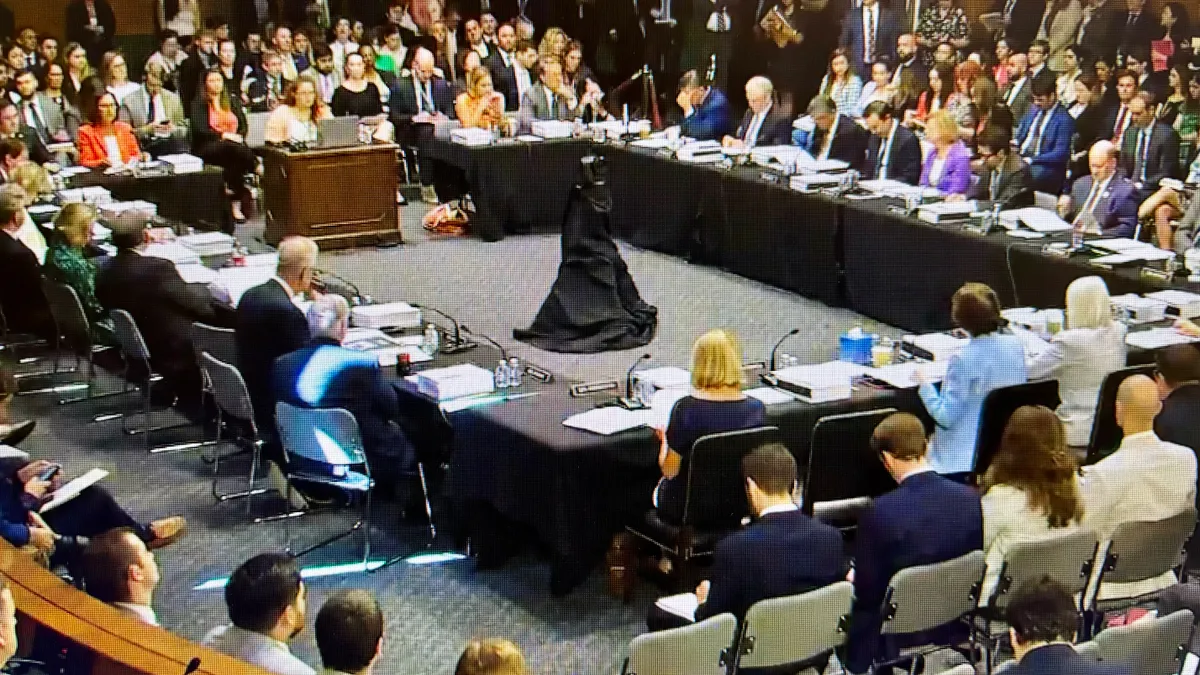Dive Brief:
- The Senate Appropriations Committee on Thursday approved, 25-3, an $80 billion funding plan for the U.S. Department of Education in fiscal year 2025, or about $1 billion more than the current budget.
- Included in the proposal are a $100 bump in the maximum Pell Grant award to $7,495 and increases to Title I ($280 million) and the Individuals with Disabilities Education Act ($295 million).
- The Senate's bipartisan plan falls below President Joe Biden's request for $82 billion but stands in stark contrast to the House Appropriations Committee bill, which recommends funding the Education Department at $72 billion.
Dive Insight:
Both Republicans and Democrats on the committee praised the proposed higher education, K-12 and early childhood education funding levels at a markup meeting on Capitol Hill.
The bill, part of a larger proposed appropriation with funding for the departments of Labor and Health and Human Services and for related agencies, "prioritizes our children, starting with early childhood education all the way to college, to make sure our students are prepared for the jobs today, but also in the future," said Sen. Shelley Moore Capito, R-W.Va., ranking member of the Labor, Health and Human Services, Education, and Related Services Appropriations Subcommittee.
The higher education funding proposal includes the Pell grant increase, as well as level spending for Federal Work Study and the Federal Supplemental Educational Opportunity Grant program.
For K-12, in addition to proposed increases that would bring total Title I funding to $18.69 billion and IDEA funding to $14.5 billion, the bill seeks to fund the English Language Acquisition program at $895 million (a $5 million increase) and Impact Aid at $1.6 billion (a $20 million increase).
Career and Technical Education would see a $45 million boost for state grants and national activities.
For early childhood, the bill would provide a $2.3 billion increase for HHS early learning programs over current spending levels, including a recommended $10.3 billion for the Child Care and Development Block Grant and $12.97 billion for Head Start.
"This bill will help states ensure more working families have access to quality child care, including by supporting providers operating on razor thin margins, particularly those in rural and underserved areas," said Sen. Tammy Baldwin, D-Wis., the subcommittee chair.
Senate Appropriations Committee Chair Patty Murray, D-Wash., added, "Investing in families is investing in our economy."
The full House and Senate still need to vote on the measures. Both chambers will be in recess for most of August. Federal FY 2025 begins Oct. 1 and ends Sept. 30, 2025.
















